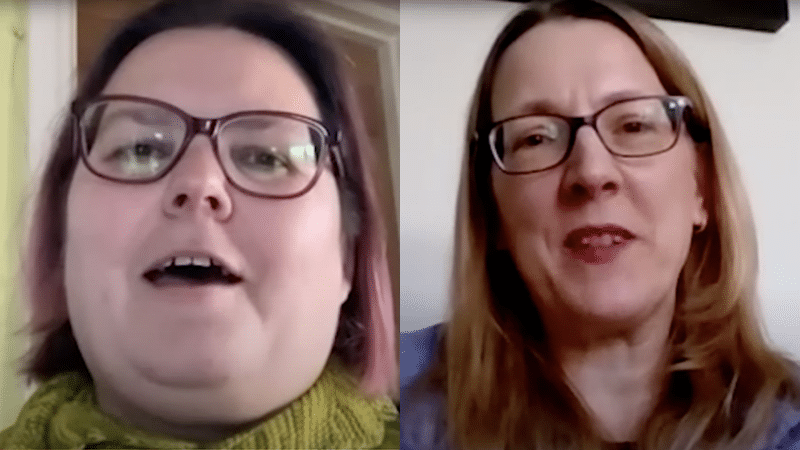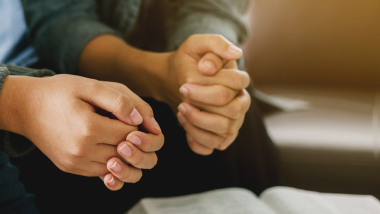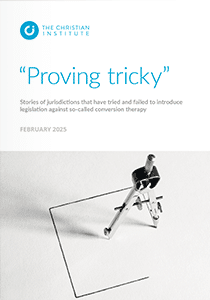Authors of a letter warning the Government about the potential consequences of a broad conversion therapy ban have spoken out after LGBT activists launched an organised online attack.
More than 2,500 Christian ministers and pastoral workers signed the letter presented to Downing Street which urged the Government not to include everyday church activities such as preaching, prayer and pastoral care in its proposed ban.
The activists publicly shared their names and church details on social media, an act known as ‘doxxing’, warning people not to attend those churches claiming they could be “unsafe”. One of the most prominent activists, Jayne Ozanne, even publicly accused them of abusing LGBT people.
Online attacks
Speaking to The Christian Institute, paediatrician and youth worker Dr Julie Maxwell and Associate Director of Church Society Dr Ros Clarke, who were among the letter’s co-authors, responded to the public sharing of their personal and professional information.
Dr Maxwell revealed that she is “no stranger to online attacks”, but added: “When you get attacked online for things like this, it’s because what you’re saying makes sense and so people are viewing it as some kind of threat.
“I think where it does bother me is that I’m involved in supporting children with gender dysphoria and supporting young people generally because I care about them. As a paediatrician, I always want the best for children and young people, and I think when you’re being accused of not doing that, that is hard because it’s going against what we want.
“The bottom line is you just want the best for young people, and as a Christian, wanting the best for young people means we want them to follow Jesus. And so it’s hard when people misread your motives, I suppose, or misquote you and make it out that you’re being abusive or uncaring or not loving people.”
Synod debates
Dr Clarke said she suspects the attacks are a tactic to influence the Church of England’s General Synod ahead of debates on its contentious ‘Living in Love and Faith’ report, which considers the Church’s response to issues of gender and sexuality.
She believes the issue of whether the Church should make changes to its doctrine or practices “is going to be extremely hotly debated”, saying: “I think since the General Synod elections last year that there isn’t a clear majority on either side of that position.
“It’s not going to be certainly pushed through, it’s not going to be certain yet that it will be voted against. And so I think there may be an aspect of trying to win that battle in social media in the hearts and minds of people before it gets to the debating chamber, so that it becomes a foregone conclusion.If they want to arrest one of us, are they going to arrest all of us?
“There may be an aspect of wanting to make it so difficult for people to stand up for biblical orthodoxy, knowing that they will get into contact with people’s churches and badmouthing people in all kinds of ways that would make life quite difficult, as a way of putting people off perhaps voting in a particular way.”
Misplaced support
She believes there is strength in numbers for the letter’s signatories, and doesn’t have the sense that any of them will shy away or change their minds on the issue as a result of the backlash.
“Two and a half thousand people saying they are willing to be criminalised if what they see as their God-given role in ministry is criminalised – I think that’s a huge encouragement isn’t it? If they want to arrest one of us, are they going to arrest all of us?”
Dr Maxwell also said the backlash to the letter has proven the point they were trying to make. “I think there are lots of people who hadn’t realised that normal Christian ministry would fall under the broad definition – or lack of definition – of conversion therapy”.If they want to arrest one of us, are they going to arrest all of us?
She added that many in General Synod have spoken out in support of a ban, but she suspects some of those people didn’t realise what they were supporting. “They thought they were putting support behind outlawing abusive practices when in fact it included normal church ministry.”
Presbyterians warn of dangers to churches from ‘conversion therapy’ ban
Equalities watchdog: ‘Conversion therapy ban risks unintended consequences’
Church leaders present ‘conversion therapy’ letter to Downing Street
Humanists want repentance banned under conversion therapy law
EXCLUSIVE: Australian pastor explains draconian Victorian conversion therapy ban



